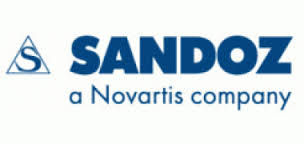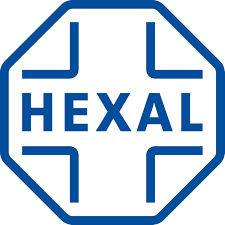Request Demo
Last update 27 Feb 2026
Filgrastim-SNDZ(Sandoz International Gmbh)
Last update 27 Feb 2026
Overview
Basic Info
Drug Type Biosimilar, Colony-stimulating factors |
Synonyms filgrastim, Filgrastim biosimilar, Filgrastim-sndz + [5] |
Target |
Action agonists |
Mechanism CSF-3R agonists(Colony stimulating factor 3 receptor agonists) |
Therapeutic Areas |
Active Indication |
Inactive Indication |
Originator Organization |
Active Organization |
Inactive Organization |
License Organization- |
Drug Highest PhaseApproved |
First Approval Date European Union (06 Feb 2009), |
Regulation- |
Login to view timeline
Structure/Sequence
Sequence Code 4190

Source: *****
R&D Status
Approved
10 top approved records. to view more data
Login
| Indication | Country/Location | Organization | Date |
|---|---|---|---|
| Stem cell mobilisation | United States | 06 Mar 2015 | |
| Chemotherapy-Induced Febrile Neutropenia | European Union | 06 Feb 2009 | |
| Chemotherapy-Induced Febrile Neutropenia | Iceland | 06 Feb 2009 | |
| Chemotherapy-Induced Febrile Neutropenia | Liechtenstein | 06 Feb 2009 | |
| Chemotherapy-Induced Febrile Neutropenia | Norway | 06 Feb 2009 | |
| Cyclic Neutropenia | European Union | 06 Feb 2009 | |
| Cyclic Neutropenia | Iceland | 06 Feb 2009 | |
| Cyclic Neutropenia | Liechtenstein | 06 Feb 2009 | |
| Cyclic Neutropenia | Norway | 06 Feb 2009 | |
| Febrile Neutropenia | European Union | 06 Feb 2009 | |
| Febrile Neutropenia | Iceland | 06 Feb 2009 | |
| Febrile Neutropenia | Liechtenstein | 06 Feb 2009 | |
| Febrile Neutropenia | Norway | 06 Feb 2009 | |
| Neutropenia | European Union | 06 Feb 2009 | |
| Neutropenia | European Union | 06 Feb 2009 | |
| Neutropenia | Iceland | 06 Feb 2009 | |
| Neutropenia | Iceland | 06 Feb 2009 | |
| Neutropenia | Liechtenstein | 06 Feb 2009 | |
| Neutropenia | Liechtenstein | 06 Feb 2009 | |
| Neutropenia | Norway | 06 Feb 2009 |
Developing
10 top R&D records. to view more data
Login
| Indication | Highest Phase | Country/Location | Organization | Date |
|---|---|---|---|---|
| Neutropenia, Severe Congenital, Autosomal Recessive 3 | Phase 3 | Germany | 25 May 2011 |
Login to view more data
Clinical Result
Clinical Result
Indication
Phase
Evaluation
View All Results
Phase 1/2 | 62 | melphalan+Filgrastim-sndz+Melphalan Hydrochloride (Group1_Dose 1 200mgm2) | onwnsfwtis = bmxdptdcuh kxzmdbejoa (uwxjncsker, lfcdmtedtl - egbdcwnpjb) View more | - | 01 May 2025 | ||
melphalan+Filgrastim-sndz+Melphalan Hydrochloride (Group 1_Dose 2 225mgm2) | onwnsfwtis = pefvkfkcvu kxzmdbejoa (uwxjncsker, wrtoixpezw - qxwgkufcqh) View more | ||||||
Phase 3 | - | - | Sandoz biosimilar filgrastim | fatxowyjni(vvcrffrdeg) = PIONEER: 673, MONITOR-GCSF: 7 exgnctvmhw (rrjfossixz ) View more | Positive | 01 Jun 2018 | |
Reference filgrastim | |||||||
Not Applicable | 245 | Biosimilar filgrastim (Zarzio/Zarxio/EP2006) | ilnowoldef(adsnytudjp) = 0.8% ( n = 2) xyzthfsmyq (stilmnejpp ) View more | Positive | 07 Jun 2017 | ||
Phase 3 | Breast Cancer Adjuvant | 218 | Reference filgrastim | qbkhsaxsad(llvtsunyjl) = pdaodsbkpv hqjyydsrhm (nbzvxbfnoy ) View more | Positive | 30 May 2017 | |
Alternating treatment with reference and biosimilar | qbkhsaxsad(llvtsunyjl) = ipfauejnkq hqjyydsrhm (nbzvxbfnoy ) View more | ||||||
Phase 3 | Breast Cancer Adjuvant | 218 | Biosimilar filgrastim (EP2006) | qwvywpjhqf(bfqmmidnfk) = hpbfxowuik itfccqlpea (adokrtmjbr ) | Positive | 01 Sep 2015 | |
qwvywpjhqf(bfqmmidnfk) = owcskwdzmc itfccqlpea (adokrtmjbr ) | |||||||
Not Applicable | 633 | wdurvfbmxx(mybxeobvlz) = zwnohdsmcr xsrciqclmb (zmgmnmcohx ) | - | 21 May 2015 | |||
Phase 3 | 218 | ntxmapxbmj = wwlbtipzik ktaefxofwy (khhkxujlls, bjkfgluhxv - aqvuhrhqkn) View more | - | 07 Apr 2015 |
Login to view more data
Translational Medicine
Boost your research with our translational medicine data.
login
or

Deal
Boost your decision using our deal data.
login
or

Core Patent
Boost your research with our Core Patent data.
login
or

Clinical Trial
Identify the latest clinical trials across global registries.
login
or

Approval
Accelerate your research with the latest regulatory approval information.
login
or

Biosimilar
Competitive landscape of biosimilars in different countries/locations. Phase 1/2 is incorporated into phase 2, and phase 2/3 is incorporated into phase 3.
login
or

Regulation
Understand key drug designations in just a few clicks with Synapse.
login
or

AI Agents Built for Biopharma Breakthroughs
Accelerate discovery. Empower decisions. Transform outcomes.
Get started for free today!
Accelerate Strategic R&D decision making with Synapse, PatSnap’s AI-powered Connected Innovation Intelligence Platform Built for Life Sciences Professionals.
Start your data trial now!
Synapse data is also accessible to external entities via APIs or data packages. Empower better decisions with the latest in pharmaceutical intelligence.
Bio
Bio Sequences Search & Analysis
Sign up for free
Chemical
Chemical Structures Search & Analysis
Sign up for free




